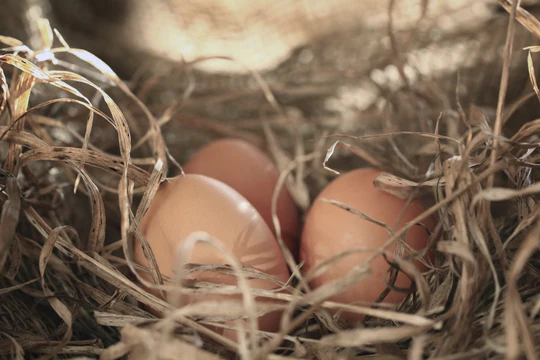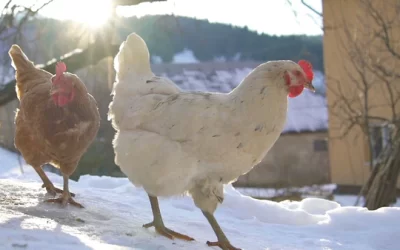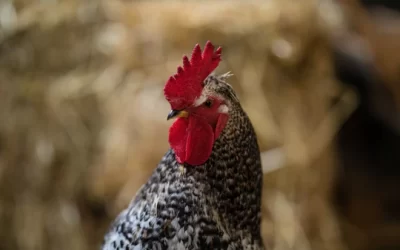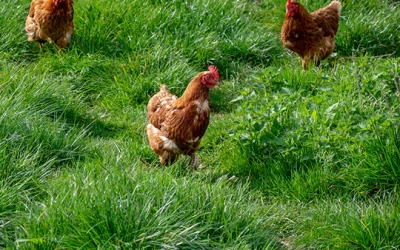If you have been raising your flock from chicks, you are probably anxiously awaiting for them to start laying eggs. Many chicken owners wonder, when will my chickens start laying eggs? When your pullets (young female chickens) actually start laying eggs though, has many variables. Continue reading to find out when to expect eggs from your flock.
Breed
The breed of your chickens has a huge impact on when they start laying eggs. Generally, they start laying eggs around the time they are 6 months old. The majority of young chickens will start laying eggs the first year that you have them. Sometimes, a chicken will take a bit longer to start laying eggs and can take up to 40 weeks.
Smaller or newer chicken breeds lay earlier (starting at 16-18 weeks), while larger or heritage breeds will take longer to reach maturity (24 weeks or more). The downside is, generally, early to lay hybrid breeds will decrease egg production after about 2 years. Slower to mature breeds will produce longer, but will eventually slow down as well.
Additionally, when your hens do start laying eggs, it might take them a week or so to lay another egg. This can happen because your chicken is still getting used to laying eggs.
For earlier laying, try these breeds:
- Australorps
- Leghorns
- Golden Comets
- Sex Links
- Isa Brown
For later laying, try these breeds:
- Wyandottes
- Plymouth Rocks
- Orpingtons
- Sussex
- Silkies
No matter the breed, if your hen reaches laying age in the fall or winter (shorter days with less light slows down laying), she may not produce her first eggs until the following spring.
Nutrition
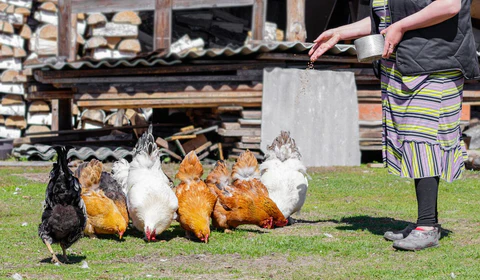 What your chicken eats has a big impact on its ability to lay eggs. If you cut corners on their feed, not only will they not lay as quickly, but they will also develop other health problems, especially with growth. Check your feed to make sure it’s fresh and follows these general protein guidelines.
What your chicken eats has a big impact on its ability to lay eggs. If you cut corners on their feed, not only will they not lay as quickly, but they will also develop other health problems, especially with growth. Check your feed to make sure it’s fresh and follows these general protein guidelines.
- Birth – 6 weeks: 20-22% protein
- 6-20 weeks: 14-16% protein
- 20 and older: 15-18% protein
On the other side of the spectrum, make sure you limit the number of treats you give your chickens. Overweight hens also do not produce eggs to their full capacity.
Signs
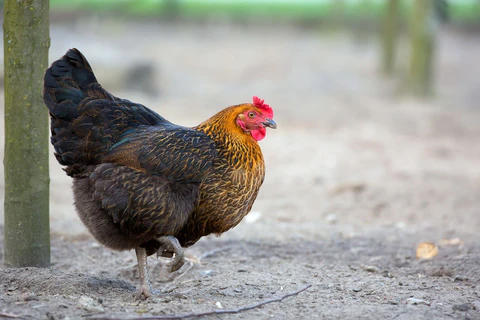 As your hens mature, you will be able to see some indicators that they are getting ready to lay eggs. Look for some of these signs:
As your hens mature, you will be able to see some indicators that they are getting ready to lay eggs. Look for some of these signs:
- A larger, redder comb
- Squatting when you pet them
- 3 separated pelvic bones (you will have to feel their rear ends to check)
- Looking for safe, quiet places to lay
If you have noticed these signs but have not seen any eggs, especially if your birds are free-range, try looking around your yard. Young layers may not always get the idea of nesting boxes right away. They may have started laying in a safe place – long grass, a quiet corner, etc. Try putting a golf ball or ceramic egg in the nesting box to point them in the right direction.
Want a Head Start?
If you are not sure you can handle the four to six months of waiting for your hens to lay eggs, you can purchase point-of-lay chickens (sometimes called started pullets). These are chickens that a breeder has raised and are nearing the time when they will start laying.
Nothing is a sure bet, though, so do not expect a point-of-lay bird to start producing eggs on the first day in your chicken coop. It may take a few weeks (around 3-6) before they start laying. But if three weeks sounds better than twenty, this might be the route for you!
You can buy mail-order pullets that ship to you through the US mail when they have reached maturity. To save on potentially high shipping costs, look for a breeder near you. Started pullets will be more expensive than chicks, but considering what you would have spent on the supplies to raise them, you will likely come up even, if not a little less.
Don’t Worry, It Will Happen!
Even though the waiting seems long, your chickens will start to lay. Pullet eggs are smaller than normal eggs, so do not be surprised if you get mini eggs at first. It is important to let the birds mature at their own pace so they will be healthy, strong, and eggcelent layers.
Your patience will pay off in delicious dividends! The best way to encourage your hens to lay eggs is to provide them with a happy, healthy lifestyle.
RELATED ARTICLES
Protecting Your Chickens From Frostbite
Did you know that chickens can get frostbite? While most chicken breeds adapt well to the cold, when winter brings cold, wet, snowy weather, your flock may be more susceptible to developing frostbite. A flock’s susceptibility to frostbite is largely determined by...
Winter Boredom Hacks For Chickens
If your flock is limited to a coop or run, you have probably witnessed your chickens showing signs of boredom and weariness. Most chicken breeds delight in staying occupied due to their strong pecking instincts and nosy nature; however, the lack of grass, weeds, and...
Tips For Selecting A Chicken Coop
Are your chickens happy in their chicken coop?When you are looking for a home for your flock of chickens, keep in mind that to feel comfy, healthy, and happy, you need to make sure you are giving them the right amount of space—both in their coops and in their runs....

